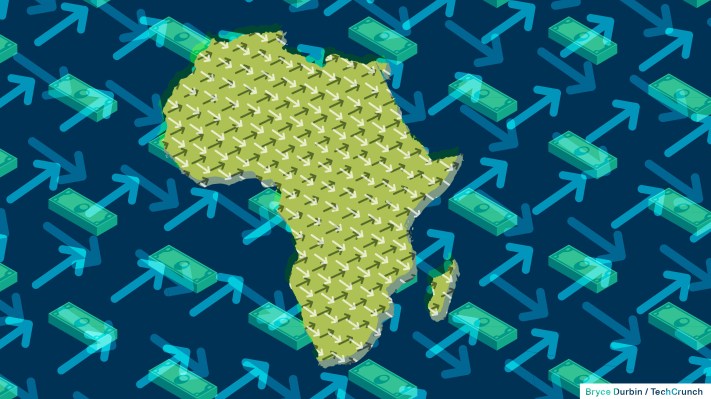Africa’s tech startup scene has grown significantly over the last decade, with various reports showing a sizable increase in the number of deals, ticket sizes and funding. Last year, startups in the continent raised about $5 billion, double what was raised in 2021 and nine times the amount from five years ago.
However, this growth has been focused on four countries — Nigeria, Kenya, South Africa and Egypt, known as the “Big Four” because they account for more than 70% of venture capital investment into the continent.
But VCs are shifting their attention elsewhere, reaching startups in at least 29 countries last year, up from 26 in 2020 and 19 the previous year. Outside the Big Four, investments ballooned to $1.4 billion, up 382% year on year, according to Partech’s 2021 report.
What could be driving the sudden interest in other African countries?
“Investors are looking for better-priced but quality deals in these markets. Deals in the Big Four have become overpriced and competitive with the entry of foreign investors,” Abel Boreto, the associate investment director of Nairobi-based Novastar Ventures, told TechCrunch.
Outside the Big Four, Novastar has invested in SolarNow from Uganda, an East African country that has also experienced a rise in investor interest; as well as weather forecast startup Ignitia and health tech scaleup mPharma, both from Ghana, which typically lands just behind the Big Four in terms of VC investment in Africa.
The West African country is already on track to surpass last year’s $167 million in equity funding raised. An analysis of the Big Deal’s database shows that Ghana had raised $133 million in equity funding by the end of July, after startups including mPharma, Dash and Fido received sizable capital.
Launch Africa Ventures managing partner Zachariah George told TechCrunch that a Pan-African approach has allowed access to lucrative deals.
“We have gotten deals at a discount because there are still not many investors looking into these regions, yet the need for early investments is very high,” he said, adding that when considering the countries to invest in, the firm looks at internet penetration, market readiness and the literacy levels of the population.
“We are keen on countries with high smartphone and affordable internet penetration, and a population that is increasingly tech savvy. A dense population that is also economically active and liberal governance matters a lot, too.”
Launch Africa is currently the most active VC in Africa, having funded more than 100 startups across 20 countries, a third of which are outside the four main markets.
The seed and early-stage VC has invested in fintechs like Sudan’s Bloom and insurtechs AlphaDirect (Botswana) and Digitech Group (Côte d’Ivoire).
Francophone countries
Overall, nearly a third of the deals signed outside the Big Four in Africa last year focused on the Francophone region, which attracted over half a billion dollars in VC funding — 695% year-on year growth, according to Partech. The funding reached 13 countries in the region last year, including Senegal, which has recently drawn extensive interest from VCs looking for emerging opportunities.
Last year, Senegal ousted Ghana as the fifth most preferred VC investment destination, propelled by Wave’s mega-round, which also pushed the mobile money provider to unicorn status and drew a spotlight on the West African country. Wave is the first unicorn in the Francophone region.
“Francophone Africa is increasingly becoming attractive for investors due to the massive market opportunity, limited competition and similar laws/regulations, which makes it easier for companies to scale faster,” Boreto said. “Wave Money [is an] eye-opener to what opportunities lay in that region.”
Four other countries within the Francophone region — Côte d’Ivoire, the Democratic Republic of Congo, Cameroon and Togo — have drawn multiple deals and funding to startups in fintech, insurtech, web3, and agtech, among others.
Across the board, fintech continues to be the most sought-after sector because the underdeveloped financial services ecosystem in most countries presents an attractive opportunity for uptake — and therefore the potential for great returns through future exits.
North and Southern Africa
Startups in Algeria, Morocco and Tunisia have also experienced a spike in investor interest, having closed 31 deals last year worth $109 million, up 443% year on year, according to Partech.
Of the three northern Africa countries, Tunisia is showing the greatest growth potential this year, having hit over $115 million in startup funding so far following a mega-round by AI startup InstaDeep — which, like Senegal’s Wave, is expected to continue to spark investor curiosity in that country.
In Southern Africa, Zambia is emerging as a tech powerhouse due to concerted efforts by tech leaders who are pushing the government to create business-friendly regulations that will attract investor confidence and capital.
Among the supporters of this bid is Perseus Mlambo, co-founder of Union54, a fintech that allows companies to issue debit cards that raised $12 million in April. Ethereum co-creator Vitalik Buterin is also reportedly supporting Zambia’s plan to be a tech hub.
Startups in neighboring Zimbabwe seem to be increasingly attracting investors, too. FlexID, a blockchain-based identity system, recently secured funding from Algorand, a blockchain protocol.
John Kamara, co-founder of venture studio Adanian Labs, which has five hubs in the continent — including in Zambia — told TechCrunch that he expects investor interest to continue growing in the southern region of the continent.
“I still think to an extent that parts of Southern Africa are frontier markets. … Zambia definitely stands out at the moment in terms of opportunity. Once you can navigate the infrastructural problems in the country, the talent, the resource, the opportunity is without a doubt there,” he said.
“Participating in developing secondary countries allows us to explore how we can trade amongst ourselves. We are also able to take the borderless Africa approach, which will allow us to build really massive startups.”
